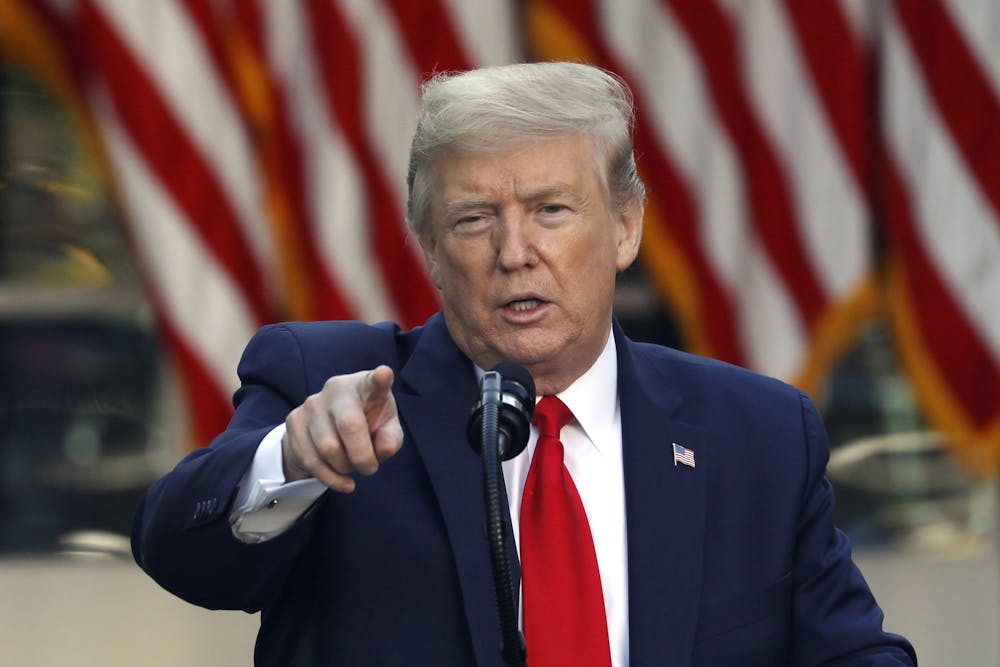The Democratic presidential primary has come to a close, with Senator Bernie Sanders, I-Vt., dropping out of the race on April 8 and endorsing former Vice President Joe Biden on April 13. Now Biden, the presumptive nominee, can turn his focus and energy toward defeating President Donald Trump in November.
Prominent Sanders supporters are divided on whether to join him in supporting Biden. Bhaskar Sunkara, the founding editor and publisher of Jacobin magazine, tweeted on April 22 that he plans to vote for likely Green Party presidential nominee Howie Howkins in the general election. Linguist and professor Noam Chomsky said in an interview with The Intercept’s Medhi Hasan on April 15 that not voting for Biden in a swing state is the same as voting for Trump.
Third-party candidates, especially Hawkins, who has more in common politically with Biden than Trump, could pull enough votes away from Biden in swing states. This would award Trump their electoral votes and another term as president.
The most famous example of something like this happening was in 2000 when Democratic nominee Al Gore lost Florida, and the White House, to former President George Bush by 537 votes. All eight of the third-party tickets on the ballot that year in Florida received more than 537 votes, technically making every one of them a spoiler for Gore. However, it is usually Ralph Nader, the Green Party candidate, who is stuck with the blame.
But why is Gore’s loss the fault of Nader and the 97,488 Floridians who voted for him? The goal of any presidential candidate is to appeal to as broad of a coalition as possible, and it is the job of every political party to nominate a candidate who can do just that. There is no guarantee that, had Nader not been on the ballot in 2000, any of his voters would have voted for Gore.
The system of single-winner plurality that is almost universally adopted throughout the country has resulted in a U.S. electoral arena that pits two major parties against one another and leaves third parties to exist only as spoilers. Most advanced democracies, in comparison, have some sort of proportional voting system that better represents the diversity of public opinion.
Rather than focusing on winning over third-party voters as November approaches, Biden and the Democratic Party should instead look toward turning out nonvoters, especially those who voted for former President Barack Obama in 2008 and 2012 but stayed home in 2016.
Despite common misconceptions concerning their so-called privilege, nonvoters are disproportionately lower income and nonwhite. With the right messaging, and perhaps the adoption of some new and specially-tailored policies, Biden could bring far more nonvoters into his campaign than he could ever pull from third party candidates.
Voting third party in November is not an actual vote for Trump, but it may serve to deflate the vote total of Biden and win the Republican Party another four years in the White House. Voters, especially those in states that are likely to be decided by a small margin, should take this into consideration when deciding how to cast their vote.
Jerrett Alexander (he/him) is a freshman studying international relations and environmental sustainability. He sits on the Bloomington Commission on Sustainability.






